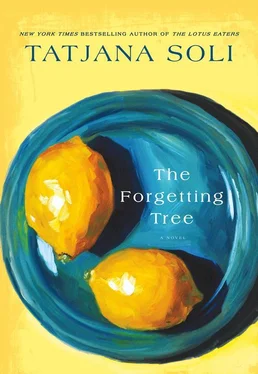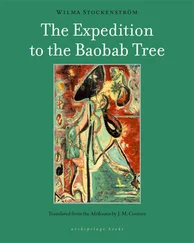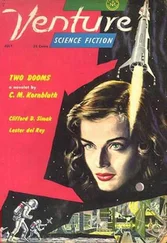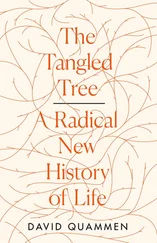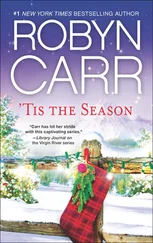With three small children, Claire insisted that Forster take Sundays off to spend with the family. They would load up the used station wagon with toys and food, then drive down to a quiet stretch of beach. Setting up under the shade of trees and umbrellas, Forster would take turns carrying the girls down to the water, where they shrieked and giggled, by turns terrified and happy. Faces striped with zinc oxide that faded with the hours. Claire watched Joshua, read, and dozed. At the end of the day, dazed by sun and salt, they piled back into the car. Tired, sticky, content.
But even as their domestic life grew richer, it became clear that the lifeblood of the place was out in the fields, and conditions were growing more difficult.
After the Girbaldi ranch, developers had turned their voracious attentions on the Baumsarg land, with proposals for communities of houses, condos, midrises, and high-rises. Forster and Hanni held out — a small, stubborn blemish with their strawberry fields skirting the new highways, windbreaks of eucalyptus and pine, rolling acres of avocado and orange and lemon. Now the local politicians were getting in on the act, claiming that the water table was being depleted, that agricultural water rates would need to be raised, all at the behest of the well-heeled developers.
Forster had the idea of building a crude lean-to at the foot of an off-ramp, stocking it with crates of fruit and vegetables, a blackboard with prices. More than the small amount of money it earned, he wanted to make their presence felt in the community so that people would want to buy locally grown rather than imported. Besides alternating the usual crops of Valencias in spring and summer, Washington navels in the fall and winter, he explored branching out into lemons, avocados, tangerines, and even blood oranges. An effort was made to innovate and modernize: wooden crates were replaced by cardboard boxes, and then recycled plastic. They stamped the family name below that of the grocer who demanded an exclusive on their harvest. All of it to no financial gain. Their lack of profitability only made Forster more intractable.
Claire heard these problems in conversations over the dinner table, at the Saturday teas, watched the effect in Forster’s growing insomnia, his pushing himself to work longer and longer hours while she stayed preoccupied by the children, until Forster came home one night from the local bar, saying he would load his gun and go blast the local county-board supervisor. The man had been bragging, claiming he would drive all the last farmers out of the area in a few years. Forster accused Claire of not caring, cloistering herself in the house, ignoring the farm and their future. It was only partly true. She bit her tongue, wanting to say she had done her part, bearing the children and caring for them. The next Saturday afternoon, she motioned Mrs. Girbaldi outside.
“I need your advice. The farm’s in trouble.”
Mrs. Girbaldi looked over the trees, shaking her head. “You married into trouble. But now … get out.”
“They won’t.”
“Then get out there. Stave off the inevitable. But it will be gone one day.”
“I don’t know anything about farming. I’m a housewife.”
Mrs. Girbaldi tapped her polished pink fingernail on Claire’s arm. “Learn the land. I did when George passed. Everyone except you hates me for selling out. But I saw that’s the future.”
“I can’t lose my home. I’m scared.”
“Nonsense. Farming is as much a part of mothering as feeding them dinner or reading them a bedtime story. You might just like it.”
* * *
So Claire reluctantly gave over child-care duties to Hanni, endured the howls of departure from Gwen, tears from Lucy. Only Josh seemed happy and content both when Claire was close and when she was not.
While Forster was in town, Claire went out for the first time on her own to talk with the foreman, Octavio.
He looked at the ground and spoke in soft, mumbling phrases, not willing to look her in the face out of a mix of respect and discomfort. A woman boss out in the fields was not done. He worried how the men would react. But a careful alliance started when he realized she was as worried about the ranch as he was.
One day, he asked her to drive with him to the edge of the ranch near the lake, an area of old trees that were past their prime fruiting days. They parked under the monstrous lemon tree that towered above them, and Octavio seemed so solemn and filled with importance about the place, she remained silent.
“That is the reason we are here.”
Claire looked at the tree, but chose not to spoil the effect by telling him they came there daily. She wanted his trust and loyalty. “How did it get that way?”
“That is the original. That’s where they all came from.”
“Why doesn’t it look like the other trees?”
“This is the original rootstock. My grandfather planted it. This is what lives. All the grafts, the fancy fruit we attach, it lives only because of the strength of the original.”
Claire didn’t think it mattered who took credit for the beginning. Who continued the ranch was what mattered.
* * *
Together Octavio and Claire walked the fields, he teaching her the growing cycles of citrus and avocado, soil conditions, irrigation patterns. Explaining bud unions, the joining of scion and rootstock, the merits of sweet-orange versus bitter-orange stock. He was surprised that her interest seemed genuine, and he warmed to the task of turning her into a farmer. She spent such long hours out in the orchards her skin tanned dark, her hair streaked pale gold. Calluses formed on her palms. Now she wore jeans more comfortably than dresses. Sometimes she fell asleep in her clothes from exhaustion. But she learned. Yields were low, and excess land had been sold, down to the last, undividable five-hundred-plus-acre parcel. Packers took too large a share of the profit. Forster at first resisted her help and then, relieved, came to rely on it.
Despite the difficulty, Mrs. Girbaldi was right — she discovered the life suited her. Fit her in many ways better than it did Forster. While he saw only tasks to be accomplished, she fed regularly on the sensory. No longer in notebooks but in her body. Farming as physical an experience as motherhood. Small, intangible things. The burn of the sun mixed with the cool coastal air, the inked flutter of leaves, the hard, briny skin of avocado, grapefruit, and lemons. Oranges, small and green and unripe. It all gave such pleasure and tempered the hardship. The air at noon filled with the sting of citrus oil; the delicate golden skin of Meyer lemons, which broke easily under a crescent of fingernail. In the late afternoon, she took naps outside with the girls when they were toddlers, baby Joshua curled against her breast, all of them spread out on blankets under the trees like fallen, ripe fruit. She could, unbeknownst to Forster, place a pinch of orchard soil on her tongue and gauge the sweetness of the coming crop.
* * *
During those early years with Forster, she drank deeply from the well of their marriage, a balance of belonging and being needed, and she didn’t miss the life she had turned her back on. Except for her books. The sorrow of abandoning domesticity turned to relief. She felt her whole being expand with the freedom of spending her days outdoors.
Forster teased that she would try to read a novel during childbirth if she could. He was about right because it was her only free time. As if observing another person’s life, she looked back to the time of school and books, working in her father’s store and reading away the long, idle afternoons, as meaningless now in the hard struggle of daily survival they faced. Her parents stopped asking her when she would return to college to finish her degree. A heresy to them that a course in soil science would have been more useful than one in English literature. But farming was so rich in the present that it was a chore to consider the abstractions of a book.
Читать дальше
